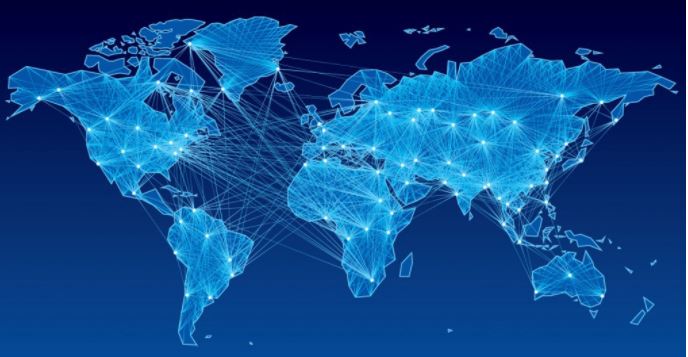Why isn’t global interconnectedness halting war?


This topic of “Why isn’t global interconnectedness halting war?” is important from the perspective of the UPSC IAS Examination, which falls under General Studies Portion.
Context
Russia – Ukraine War.
What the editorial is about?
The reason why the international world order failed to prevent the war.
The international world order
- The international order, created in 1945, rested on certain assumptions and obligations.
Assumptions
- The international order would prioritise peace & development.
- There would be institutions — not only the United Nations (UN) as a universal institution, but the International Monetary Fund, the World Bank, and the World Trade Organization (WTO) as three pillars — to sustain the peace and to provide mankind with a framework for sustainable development.
Jolt to the vision of the international order created in 1945
- In 1946, the first jolt to the vision came with the Cold War.
- When the Cold War ended, there was an expectation that we would go back to the vision of 1945.
- But unfortunately, the U.S. and NATO [North Atlantic Treaty Organization] chose a path of containment and confrontation with Russia, which began to react to this after NATO planned to include Georgia and Ukraine in the alliance.
- After endorsing the Minsk agreements, the United Nations Security Council (UNSC) failed to enforce it.
- It is the failure of the UNSC and the failure of European powers, which are equally responsible as the U.S. for carrying on with NATO in the 1990s.
Is Russia’s bombardment of Ukrainian cities a violation of the UN Charter?
- Russia’s bombardment of Ukrainian cities is a violation of the UN Charter.
- The violation of the territorial integrity of states and the sovereignty of states is one of the principles which binds the UN.
- While today Russia has vetoed the resolution which brought against Russia’s invasion of Ukraine in the UNSC, which was co-sponsored by about 80 countries, not very long ago, the U.S. also vetoed a resolution condemning Israel’s activity in its occupied territories.
- The Ukraine crisis should actually act as a catalyst for the UN General Assembly (UNGA) to agree on convening a general conference to review the Charter because if there are issues with the veto, this is the place with the legal framework to do it.
If the UN is so ineffectual, is it time to review it?
- It doesn’t matter what the UNSC does if it is not going to protect your life, which is precious.
- Considering the recent Sino Russian joint statement, it is all about preserving the existing world order.
- There is not a single word about UN reform in that statement.
- We’ve seen the UNSC, which is completely paralysed.
- This is the perfect moment to reform it.
Are we seeing a complete breakdown of the world order and the global economic order?
- In a bid to isolate Russia, the world has imposed some of the most wide-ranging sanctions seen in recent times.
- This can be seen as a complete breakdown of the world order and the global economic order.
- the global economic order is sought to be rearranged.
- These are the most wide-ranging sanctions of recent times, but there are some loopholes.
- Energy exports from Russia are not forbidden for two political reasons.
- Europe will suffer if that happens.
- The U.S. is heading towards a mid-term election, and the U.S. don’t want gas prices to go up.
- The sovereign debt rating of Russia has been reduced to junk status overnight because otherwise the sanctions would have meant nothing.
- But Russia controls supply chains in metals like titanium, palladium and neon.
- In other words, Russia is a full spectrum commodity superpower. So, it is not going to be that easy to isolate it.
- These sanctions, which are not supported by the UNSC, are unilateral sanctions.
Another Message
- Iran and North Korea have been isolated but not attacked, whereas Ukraine and Libya, two countries that gave up nuclear weapons, have been invaded.
The existential challenge for multilateralism
- The inability of multilateral institutions, whether it is WTO, the UNSC or the NPT, to rewrite the rules will make them irrelevant if they continue to be discriminatory. The UNSC has become irrelevant. The NPT has become irrelevant. The WTO has become irrelevant.
- So, it is a real challenge because this kind of synchronised crisis can be found in all multilateral institutions which were set up in the aftermath of World War II.
- They have to be redesigned. That is the existential challenge for multilateralism.
- COVID-19 had already dealt a blow to multilateralism, given refusals by big powers to waive patents, provide access to vaccines, etc.
Conclusion
- This crisis provides an opportunity to change the structure, but the window is going to be very brief.
- The current structure means that the P-5 [China, France, Russia, the U.K., and the U.S.] veto-holders believe that the veto is what saves them from international scrutiny and for being able to do what they do and get away with it. they will not give that up.
- Even so, there is this brief window given the Ukraine crisis, and India has nothing to lose and everything to gain by using this window, using the available instruments, going to the court of international public opinion and making our case strongly for a seat on a reformed Council.
Referred Sources

